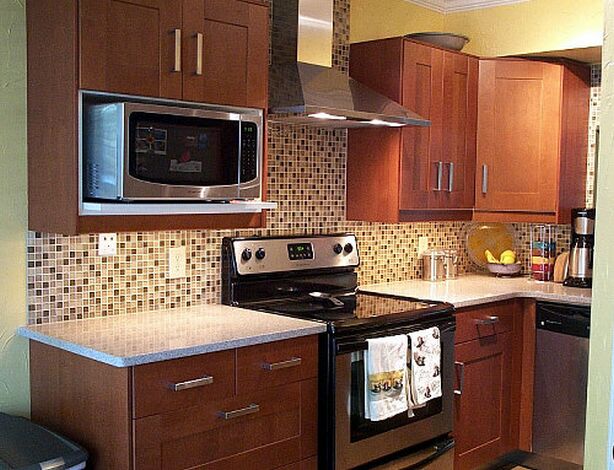
Imagine this. You spend an arm and a leg installing a new granite slab on top of your new cabinets then out of nowhere, your granite contractor starts talking about the need for a granite sealer to seal the countertops. It sounds like a scam. After all, granite is a rock, right? Why would it need to be sealed? Is sealing granite countertops necessary?
The short answer to this question is NO, you don’t have to seal the countertops. I know you have read that granite is porous, so you need to seal it to prevent stains from coming about, but this is not the case. Before you begin throwing stones at me,
Let me explain the deal.
While new granite slabs need a seal to prevent them from staining, it doesn’t mean you should blindly apply the sealer on any new slab you come across. You should note that most granite slabs don’t need sealing.
The dark coloured slabs don’t need the application of the granite sealer as they are already too dense to absorb liquids and stain. Aren’t sure whether you should seal your slabs? To determine whether your countertops need sealing, you should do a test.
Test to determine whether you need to seal the countertops
The cool thing is you don’t need to call the CSI or spend a fortune to tell whether your countertops are ripe for sealing. You can easily do it on your own at the comfort of your home. Here is how to do it:
- Begin with filling a cup with clear, cool tap water. You don’t need a lot of it—a quarter of a cup is enough.
- Set a timer on your watch or phone and time the absorption rate of the countertop
- Pour a small amount of water onto the countertop. You should pour just enough to create a pool, the size of the hand. For best results, pour it in two or three places across the counter.
- After pouring, start the timer or make a note of the time you poured the water.
- You should wait for 30 minutes or until there is no standing water on the countertop.
If the countertop absorbs the water immediately, the stone is highly porous, and you need to apply the sealant at least once every 3 months.
If the slab absorbs the water in 4-5 minutes, you should apply the countertop sealant at least once a year for maximum protection.
Does the countertop absorb the water after 10 minutes? Then the slab isn’t too porous, and you can get away with sealing it once every 2 years.
If the slab doesn’t absorb the water after 30 minutes, you don’t need to seal the surfaces to prevent them from staining. You can still seal the slab, if you want to, to avoid scratching and etching.
How to seal granite countertops
If you have undertaken the test and determined you have to seal the slab, you should go ahead and do it. The beauty is that it’s easy to seal the surfaces as you only need to spray the sealer and let it sit on the countertop and then find out if you need to apply a second layer.
If you used a high-quality sealer, you won’t need a second layer so you should always go for the high-quality product.
When buying the sealant, look for one with an advanced chemical technology that will make it possible to form a more permanent bond on the granite slab.
While the high-quality product will cost you more to purchase, it will save you a lot of money in the long run as it will last for a long time.
Sometimes sealing the countertops is messy and you might not know whether you should apply a second layer. To avoid applying less or too much sealing product, you should let a professional do the work.
Countertop care and precautions
Hiring granite companies NC to seal the countertops isn’t enough—you still need to observe the right habits to ensure your countertops are always in tip-top shape. Never place hot items directly on the countertops as you will damage them. To protect the surfaces, use coasters, trivets, mats and other protective items.